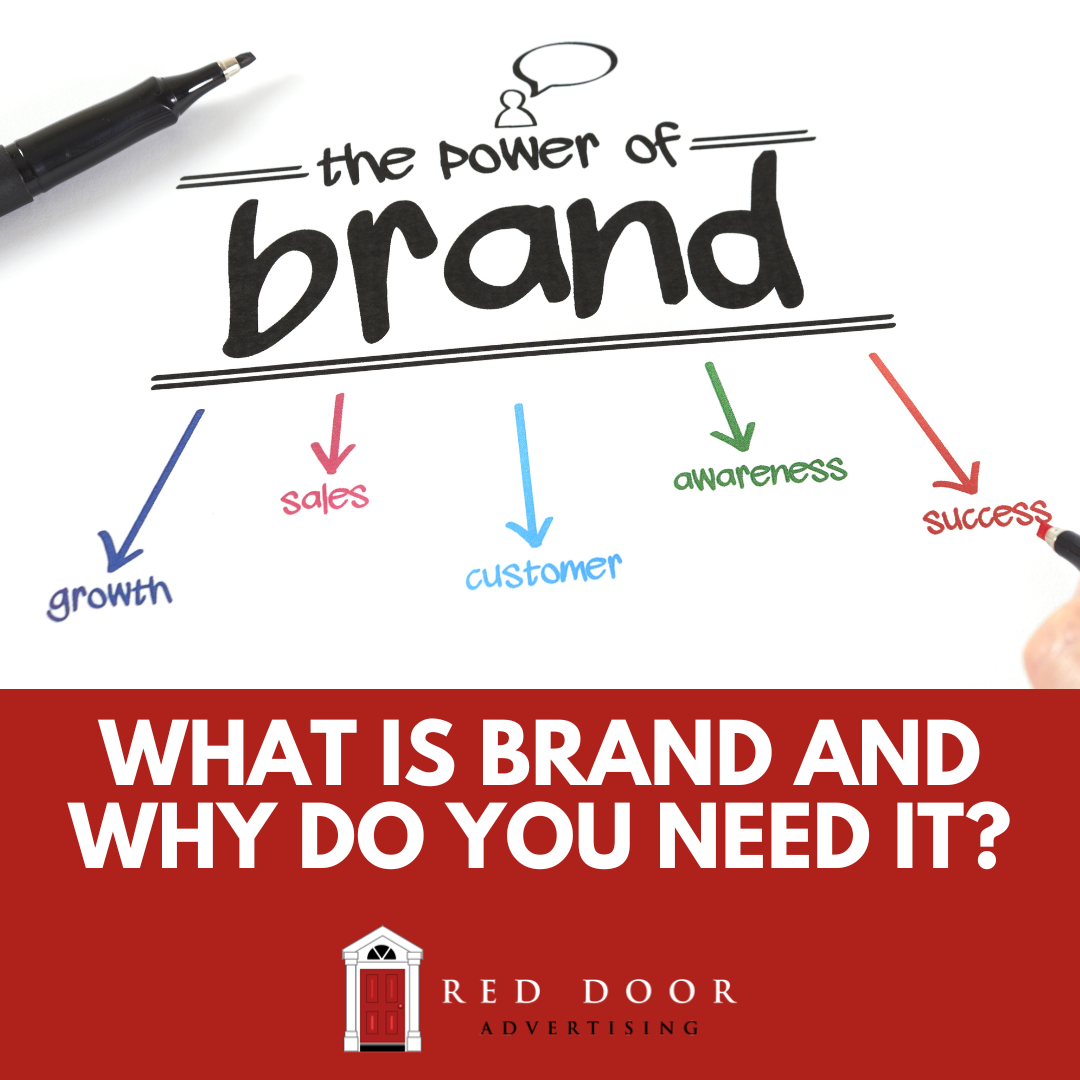
28 Oct What is Brand and Why Do You Need It?
In the world of advertising and marketing, the concept of “brand” is more than just a logo or a catchy tagline. It’s the essence of a company’s identity, its reputation, and the perception it creates in the minds of customers. A strong brand goes beyond just recognition—it builds trust, creates loyalty, and sets a business apart from its competitors. Here are the core elements of branding and its significance for your business.
What is a Brand?
A brand is not just the visual representation of a company; it’s the entire experience that a customer has with your business. More importantly, it represents the emotional and psychological relationship that customers have with a product, service, or company. When people think of a brand, they think of the promise that it makes and their consistent experiences with it.
Components of a Brand
- Brand Identity: This is how you want your brand to be perceived by your audience. It includes all the visual and sensory elements like logos, colors, fonts, packaging, and design.
- Brand Personality: Think of your brand as a person. What kind of traits would it have? Friendly, professional, innovative, humorous? Brand personality gives your company a human quality, making it relatable and appealing to your target audience.
- Brand Voice and Tone: This refers to the language and style of communication that your brand uses across all platforms. Whether your brand voice is casual and playful or formal and authoritative, it must be consistent to maintain a coherent identity.
- Brand Values: The core principles and beliefs that your brand stands for are what set you apart. These values should resonate with your audience’s own beliefs and drive the actions and decisions of your business.
- Brand Promise: This is the expectation that you set for your customers—what they can consistently expect from you every time they interact with your brand. A strong brand promise helps build trust and credibility.
- Brand Experience: This refers to the overall experience your customer has when interacting with your brand, including customer service, user experience, product quality, and emotional engagement.
Why Do You Need a Brand?
Having a brand is essential for a business’s success, especially in today’s competitive marketplace. A well-defined brand can transform your business by creating a clear identity, building customer loyalty, and increasing market value. Here are some reasons why you need a brand:
1. Differentiation from Competitors
In any industry, competition is inevitable. A strong brand helps you stand out in a crowded market. It creates a distinct image in the minds of consumers, making it easier for them to recognize and choose your products or services over others.
For example, consider how Nike differentiates itself from other sports brands by embodying an attitude of athletic perseverance and empowerment.
2. Building Customer Trust and Loyalty
Consumers are more likely to buy from a brand they know and trust. A consistent and authentic brand helps create that trust, making customers feel more confident about their purchase decisions. Trust leads to loyalty, and loyal customers are more likely to become repeat buyers who recommend your brand to others.
Starbucks, for example, has built a strong brand loyalty by creating a consistent, welcoming atmosphere and a focus on quality and customer service.
3. Emotional Connection with Customers
A strong brand creates an emotional connection with its audience. It goes beyond product features and benefits, tapping into deeper feelings and values that resonate with the customer. This connection can make your brand more memorable and create a lasting impression that influences buying behavior.
Brands like Coca-Cola and Disney thrive on emotional connections. Coca-Cola’s brand is all about happiness and togetherness, while Disney embodies magic and joy.
4. Increased Business Value
Branding can significantly increase the value of a business. A strong brand is often a company’s most valuable asset because it can attract investors, help with business expansion, and justify a higher price point for your products or services. Companies with strong brands are perceived as more established, reputable, and trustworthy, which can lead to greater market share and profitability.
Apple, one of the most valuable brands in the world, is a prime example of how a strong brand can drive immense financial success and customer loyalty, even in a highly competitive market.
5. Guiding Marketing and Advertising Efforts
When your brand is clearly defined, it serves as a blueprint for all your marketing and advertising strategies. Knowing your brand’s voice, personality, and target audience makes it easier to create marketing campaigns that resonate with your customers.
6. Consistency Across All Platforms
A strong brand provides consistency, which is crucial for building credibility and trust. From your website to social media profiles, packaging, and advertising, every customer touchpoint should reflect the same brand identity. Consistency helps consumers recognize your brand easily and builds a sense of familiarity, which is key to gaining their trust.
How to Build a Strong Brand
Building a strong brand takes time, effort, and a deep understanding of your audience. Here are some steps to get started:
- Define Your Brand Purpose: Understand what your brand stands for, its values, and the purpose it serves.
- Know Your Audience: Research your target audience to understand their needs, preferences, and pain points.
- Develop a Unique Identity: Create a visual and verbal identity that reflects your brand’s personality and values.
- Be Consistent: Maintain a consistent tone, message, and design across all your platforms.
- Engage with Your Audience: Build a relationship with your customers by being responsive, engaging, and providing value through your communications.
In today’s competitive world, a strong brand is essential for differentiation. Your brand is the foundation of your business’s identity and its relationship with customers. Investing in your brand is investing in the future success and sustainability of your business. When done right, branding is not just a marketing tool—it’s the soul of your business that drives growth and creates lasting customer relationships.
For more information on building an effective brand strategy, contact us at randi@reddooradvertising.com or brendan@reddooradvertising.com or visit https://reddooradvertising.com/.


